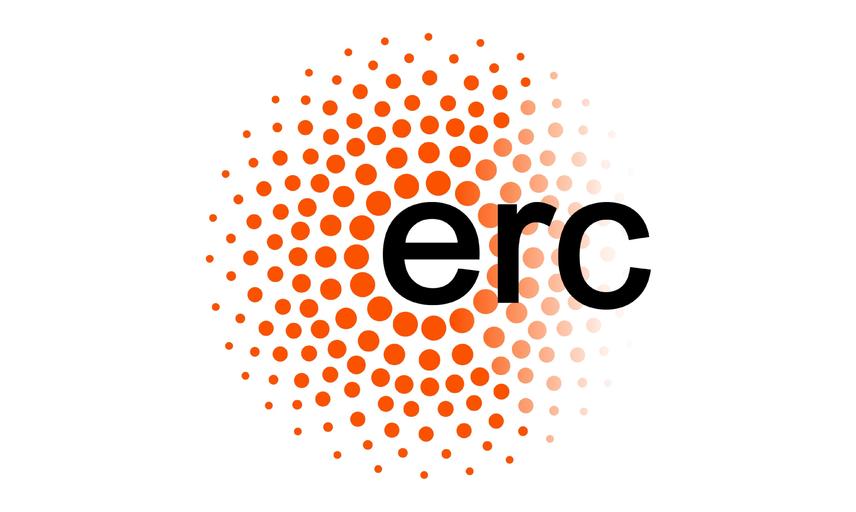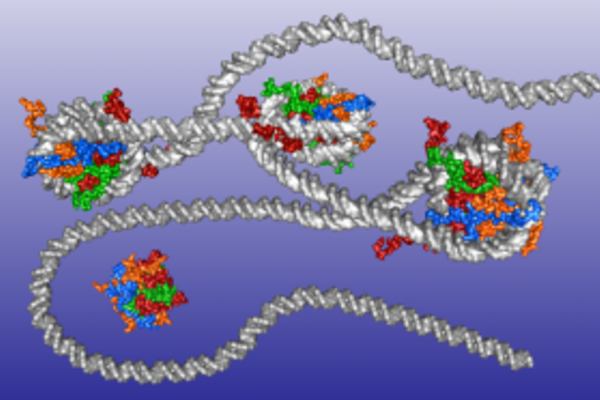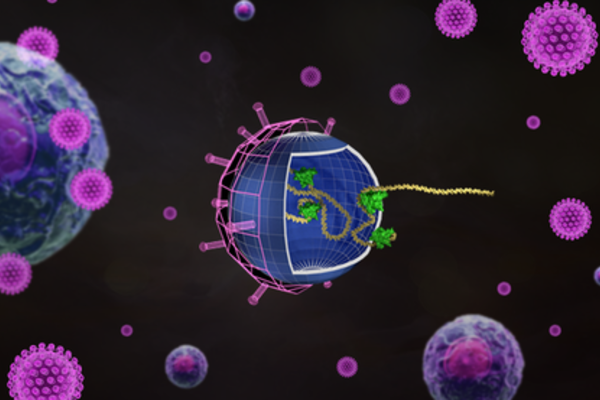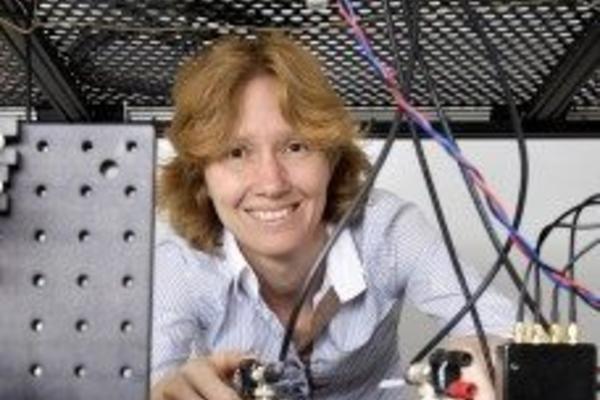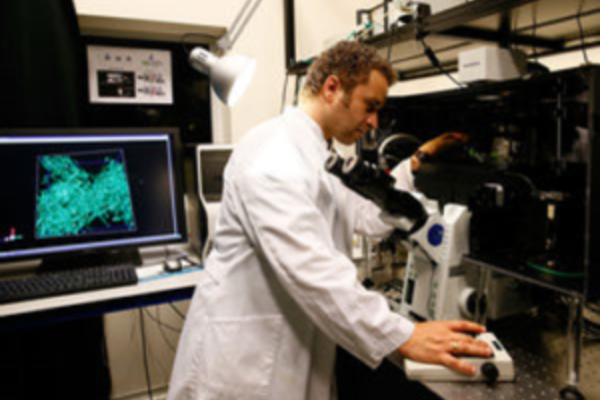Home
Welcome to the Nynke Dekker Lab
Our lab focuses on probing and explaining protein dynamics using integrative approaches that build on quantitative biophysics and state-of-the-art biochemistry. At present, we predominantly concentrate on DNA replication in eukaryotic systems (including also the chromatin context), but we have also examined bacterial and viral systems, the latter in the context of RNA replication and viral capsid mechanics. We typically perform our studies in vitro, using purified components, which allows us to build up and control the environment.
Together with the other Biophysics groups at Oxford, we are part of the Department of Physics. Our labs are housed in the newly built Dorothy Crowfoot Hodgins building, which houses the interdisciplinary Kavli Institute for Nanoscience Discovery and the Department of Biochemistry.
Our work
In our group, we aim at understanding the molecular processes that underlie DNA replication and virology, with the particular goal of gaining spatiotemporal insight into their dynamics. More concretely, we are interested in understanding how individual molecules interact in space and time, so as to jointly perform challenging tasks extremely efficiently and accurately.
Our approach combines the development and use of cutting-edge single-molecule biophysics tools (e.g. single-molecule fluorescence and single-molecule force spectroscopy such as optical and magnetic tweezers, or a combination of both), which allow us to visualize and track individual molecules, with in-house purification of key proteins and advanced biochemical assays. This integrative approach allows us to switch between rapid ensemble assays and focused single-molecule biophysics experiments that target questions regarding the dynamics of proteins.
While the primary aim of our research is to provide fundamental mechanistic insight into DNA replication and virology, also biomedically relevant clues can be obtained using our approaches. For instance, we can study how eukaryotic genomes deal with not only replication of the genome but also with the replication of epigenetic information, or how mutations in a viral genome are triggered by drug compounds.
JOB OPENINGS
No job openings at the moment.
Keep checking this page for any updates!








